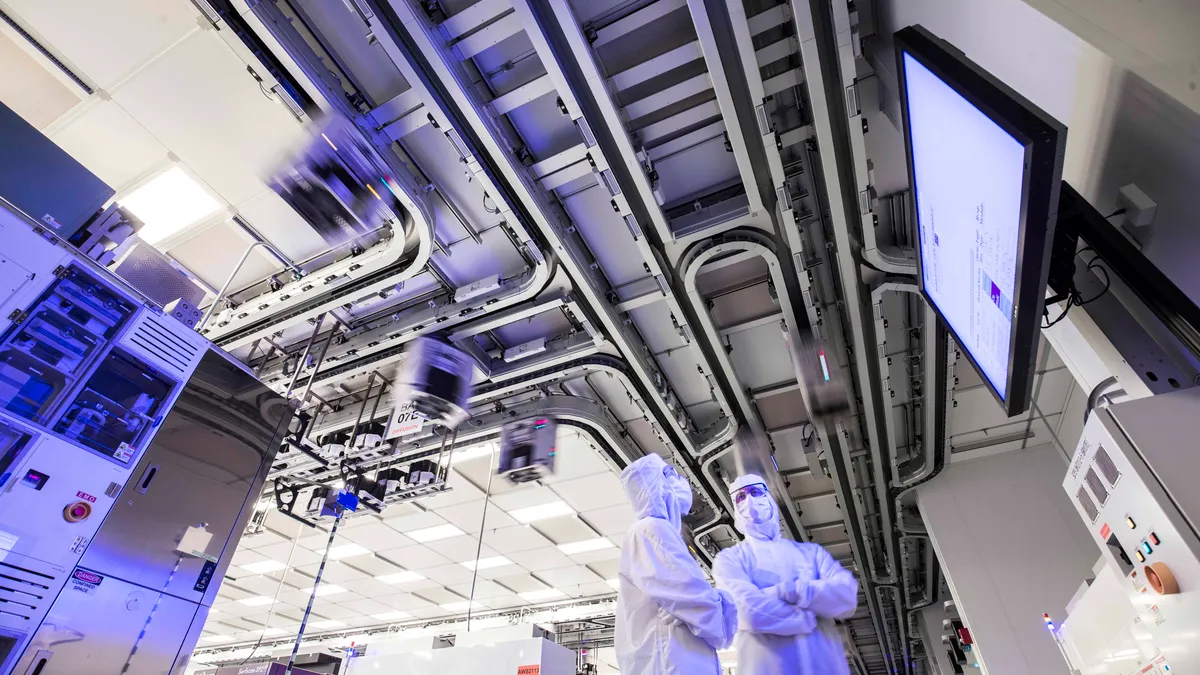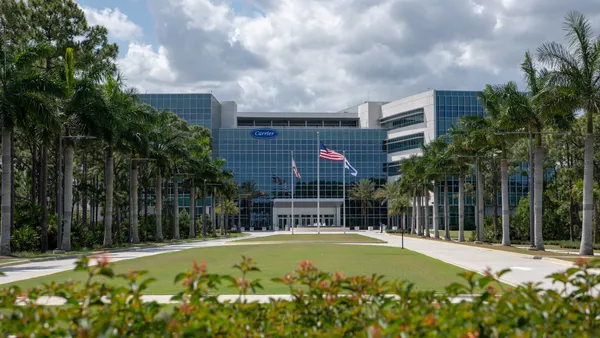Dive Brief:
- Texas will invest $1.4 billion in semiconductor manufacturing and development, part of a plan to bolster the state’s status amid a nationwide sprint to attract investment in the sector.
- The state created the Texas Semiconductor Innovation Fund, a $698.3 million program to help local businesses, organizations, colleges and universities develop semiconductor programs.
- Two state schools will also receive hundreds of millions of dollars to develop specific programs: The University of Texas at Austin’s Texas Institute of Electronics will receive $440 million to establish and build an R&D fabrication facility, and the Texas A&M University System will receive $226.4 million for chip fabrication R&D and its Center for Microdevices and Systems.
Dive Insight:
The new Texas law would complement federal CHIPS and Science Act funding to promote domestic microchip production.
In February, the U.S. Department of Commerce opened its first round of applications for the federal CHIPS and Science Act $39 billion funding to incentivize semiconductor manufacturers to build factories in the U.S.
The Texas Semiconductor Innovation Consortium, part of the state's funding package, is a piece of its broader strategy to scale its chip industry. The consortium aims to attract public and private investments in semiconductor R&D, commercialization and manufacturing, as well as create workforce training programs.
“As the U.S. Department of Commerce continues its work to implement the CHIPS Act, we must ensure the state of Texas is equipped to continue to lead the nation in terms of cutting-edge technology and critical semiconductor manufacturing,” Abbott said in his 2024-2025 governor’s budget. “State support for workforce training programs, higher education research proposals, infrastructure improvements, tax incentive programs, and deal closing funds will be crucial in competing these federal dollars.”
The state has attracted two major semiconductor projects in recent years. Texas Instruments broke ground on its $30 billion semiconductor facility in Sherman last June, and Samsung Electronics is currently building a $25 billion semiconductor factory in Tyler, the costs of which have surged from $17 billion due to inflation.
Texas isn’t the only state working to raise its profile in the semiconductor industry. Last month, Indiana and Purdue University signed a memorandum of understanding with Belgium-based research firm Imec to collaborate on advancing semiconductor research and development in the state











